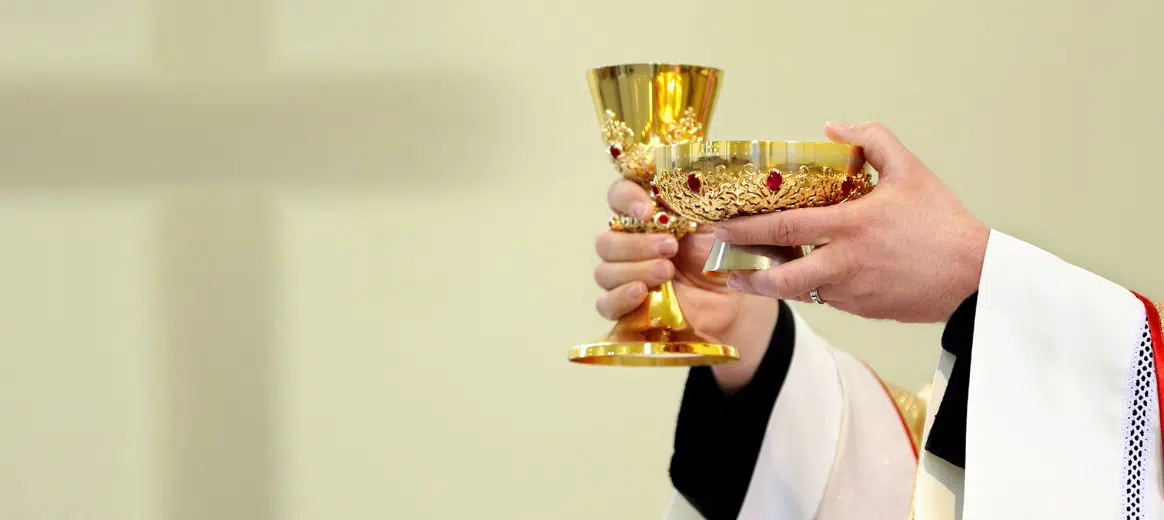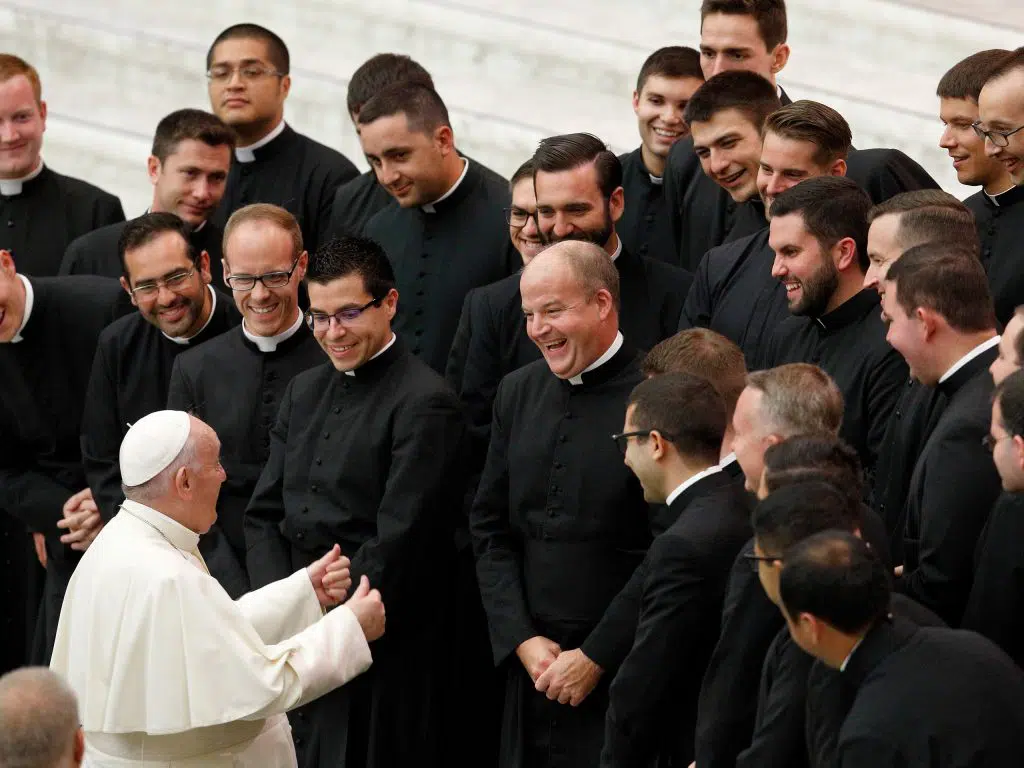One of the names we use for Mass or the Blessed Sacrament is “holy Eucharist.” The word “Eucharist” comes from Greek and means “thanksgiving.” Going to weekly Mass is literally sharing as God’s family in a thanksgiving banquet of love (The Catechism of the Catholic Church, 1328). We give God our worship and thanks with contrite hearts, and he gives us Jesus to be our food for eternal life and to help us meet the daily challenges we face.
After the liturgy of the word, the priest invites the people to participate in the sacrifice by asking them to “Lift up your hearts.” The people affirm their offering with: “We lift them up to the Lord.” After the priest invites the people to “give thanks to the Lord our God,” the people respond: “It is right and just.” Have you ever wondered why we say both right and just? At first, it may seem a bit redundant. An older translation for “right” is the word “mete.” Mete comes from a Greek word for measurement (as in “meter”). In this context, the word “right” means the correct measure. The people are saying here that giving thanks to God in this way is “exactly right.” To offer their hearts to God at Mass is the exact method that befits the act of praising and thanking God.
The word “just” has a slightly different meaning. This word refers to the fact that giving God worship and thanksgiving is what God truly deserves. As children of God, the people have a duty to give God what justly belongs to him: their worship. This duty is a serious obligation that defines their relationship to God. Those who want to be part of his family must abide by his laws and strive to please him. The church has made it clear over many generations that the way God desires to be worshipped is to receive the sacrifice of our contrite hearts at Mass every Sunday and holy day.
Given the crucial role parents play in their child’s religious and moral education, it belongs to them to witness to what is “right and just” by making Mass the highest priority of the week. Not only do parents show God they are striving to fulfill their filial responsibility to “make known to children” God’s faithfulness (Is 38: 19), they may live to see the fruits of their labors in their grandchildren’s faithfulness to the love of God, too.
Jones, a parishioner of St. Catherine of Siena Church in Great Falls, is an author, editor and former director of religious education.



Christ commands us to love